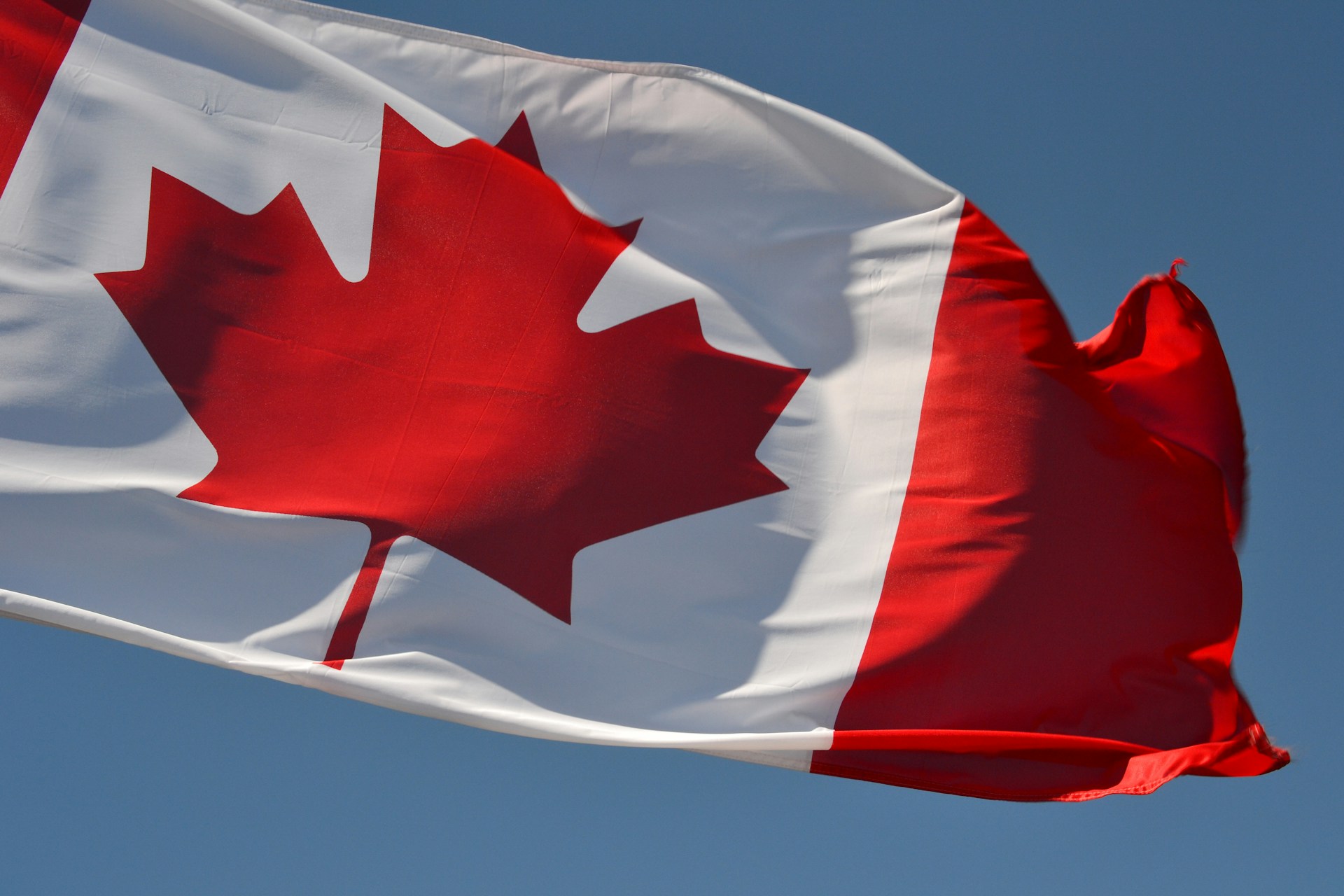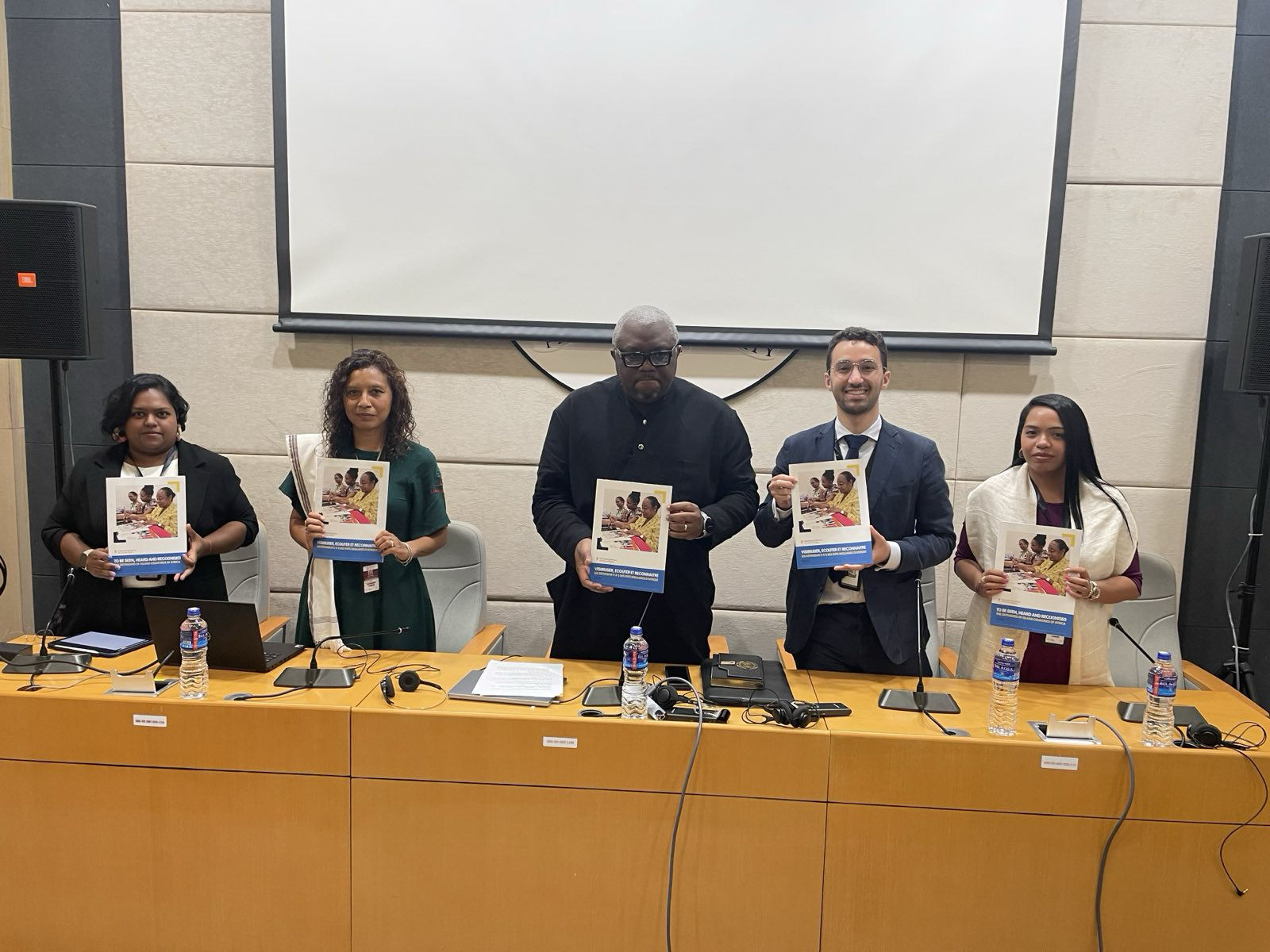
Egypt: Reform unjust vice laws, guarantee open civic space
During Egypt's UPR adoption at HRC59, Nora Noralla delivered a joint statement on behalf of ISHR, Cairo 52 and Middle East Democracy Center. Watch and read the full statement below.
© Praveen Kumar Nandagiri / Unsplash

During the 55th session of the UN Human Rights Council, ISHR supported defender Ricardo Lamour from Bout du Monde to engage with the adoption of the Universal Periodic Review report on Canada. Canada must recognise people of African descent as a distinct group! Read the joint statement below.
While Canada is often seen as a beacon of diversity and inclusion, the lack of recognised efforts for legislative changes concerning People of African Descent, the youngest demographic in the nation, stands in stark contrast to this image.
As reported in the JS9 submission to the UPR, there have been extensive accounts of discrimination experienced by Afro-descendant persons in Quebec, the province with the second-largest Black population in Canada. This form of racism is visible in all areas of society but especially in the laws, policies, programmes, decisions and practices of the governments of Quebec and Canada. It violates numerous international human rights treaties to which Canada is bound, including the International Convention on the Elimination of All Forms of Racial Discrimination (ICERD)[i].
The troubling experiences of individuals including human right defenders like myself, Ricardo Lamour, where I faced backlash for challenging the use of derogatory language by media professionals; El Jones, unjustly barred from the Supreme Court of Canada for her advocacy; Sarah Jama, who endured severe political and personal repercussions for her peaceful stance on Gaza; and a veteran Black immigration commissioner in Montreal, dismissed for exposing undue interference in asylum decisions, all exemplify a concerning pattern. These incidents, involving advocates of African descent, highlight a systemic issue where voices upholding principles of justice, equity, and human dignity, particularly in contexts of racial discrimination or peace advocacy, face silencing, ridicule, or punitive actions.
The UPR provides a clear lens through which we see Canada’s commitments and shortfalls. An array of themes emerges from the 332 recommendations Canada received, including on combating racism and discrimination[ii] to enforce legal and policy reforms, addressing hate[iii] speech and crimes, combating systemic racial profiling, ensuring judicial inclusion, implementing recognition strategies and the establishment of roles like a Black equity commissioner highlight a path forward, to address systemic racism’s root causes and its impacts on African Canadians, thereby echoing the demands in the JS9 Report Anti-Black Racism in Quebec report.
We urge Canada to abide by its obligations under international law and stop using its constitutional framework and invoking jurisdictional competencies as an excuse to delay justice for victims of human rights violations. In particular, we urge Canada to:
Notes:
[i] International Convention on the Elimination of All Forms of Racial Discrimination, December 21, 1965, 660 U.N.T.S. 195 (entry into force January 4, 1966; ratification by Canada October 14, 1970).
[ii] 37.84 Take further national steps to address structural racism in health services and prisons by including these issues in a national anti-racism strategy and ensure that the strategy is evaluated and renewed for the next reporting cycle (Sierra Leone)
37.87: Continue to strengthen all the mechanisms to ensure equality for all, and eliminate all forms of discrimination on the ground of race, especially of persons of African descent (Uganda).
37.96: Consider developing a national strategy to combat hate crimes, discrimination and hate speech, particularly against Afro-descendants (Sierra Leone).
37.109: Step up efforts to combat all forms of discrimination, in particular racial discrimination, by further emphasizing the fight against hate speech and racist and xenophobic speech against religious minorities and persons of African descent (Djibouti).
37.113: Continue efforts to address crimes and hate speech against religious and ethnic minorities, such as Muslims and people of African Descent (Libya).
37.117: Take effective steps to address racial and religious profiling and over surveillance by police, security agencies and others, which frequently target Muslims and Arabs, or those perceived to be Muslims or Arab (Azerbaijan).
37.118: Put an end to racial profiling and excessive surveillance by police and security agencies against Indigenous, Black and other racialized communities (Venezuela).
37.129: Tackle systemic issues of racial profiling, discrimination against Indigenous persons and address overrepresentation of Indigenous Peoples in the prison system, especially women (Pakistan).
37.130: Strengthen its efforts to address the overrepresentation of persons of African descent, Indigenous Peoples, and minority groups in the prison and welfare systems (Trinidad and Tobago).
37.132: Adopt legislation to restrict the use of prolonged solitary confinement and adhering to the United Nations Standard Minimum Rules for the Treatment of Prisoners (Mandela Rules) (Libya).
37.133: Ensure that solitary confinement is in line with the United Nations Standard Minimum Rules for the Treatment of Prisoners (the Nelson Mandela Rules) and redouble efforts to address the overrepresentation of persons belonging to Indigenous Peoples and other minority groups in prisons, as well as its underlying causes (Costa Rica).
37.311: Acknowledge the process of systemic racism affecting people of African descent, and implement a clear anti-racism strategy with robust compliance mechanisms (State of Palestine), .
37.312: Recognize people of African descent as a distinct group in the Canadian Constitution and other legal and regulatory frameworks to enhance equal opportunities and ensure their inclusion in all decision-making processes that affect their lives (State of Palestine)
37.313: Appoint an independent Black equity commissioner with a mandate to address the root causes of systemic racism and discrimination experienced by Canadians of African Descent, as well as the impact on the enjoyment of their human rights (Panama).
[iii] 37.90: Put an end to structural discrimination and hate crime against racial and religious minorities, such as Muslims, persons of African and Asian descent (Democratic People’s Republic of Korea).
37.91: Continue to work to combat racism, racial discrimination, xenophobic hate speech and crimes, and all manifestations of Islamophobia (Tunisia).
37.93: Effectively address hate speech and crimes targeting race, religion or ethnicity both online and offline, including hate speech, by formulating and implementing a comprehensive national anti-hate strategy (Malaysia) .
37.96: Consider developing a national strategy to combat hate crimes, discrimination and hate speech, particularly against Afro-descendants (Sierra Leone).
37.97: Strengthen measures in tackling hate speech and hate crimes, particularly against religious and racial minorities, including by developing a comprehensive anti-hate strategy which will also be complemented by the country’s anti-racism initiatives (Thailand).
37.99: Combat hate speech and hate content on online platforms, as well as hate crimes targeting race or ethnicity (Azerbaijan).
37.104: Effectively prevent attacks on places of worship of religious and racial minorities, strengthen legislative and other measures to address hate crimes and hate speech (India).
37.109: Step up efforts to combat all forms of discrimination, in particular racial discrimination, by further emphasizing the fight against hate speech and racist and xenophobic speech against religious minorities and persons of African descent (Djibouti).
37.111: Intensify its efforts to combat racism, hate speech, hate crimes, and discrimination against migrants and Muslims minorities (Bangladesh).
37.112 Continue to combat discrimination, intolerance and hate speech against racial, religious and sexual minorities (Cabo Verde)
37.113: Continue efforts to address crimes and hate speech against religious and ethnic minorities, such as Muslims and people of African Descent (Libya).
37.114: Put an end to the increase and punish racially or ethnically motivated hate crimes against minority and vulnerable groups, and eradicate racist and discriminatory practices by public officials and entities (Venezuela).
[iv] Special Rapporteur on Contemporary Forms of Slavery, Professor Tomoya Obokata. Following a country visit to Canada, made several recommendations, including:

During Egypt's UPR adoption at HRC59, Nora Noralla delivered a joint statement on behalf of ISHR, Cairo 52 and Middle East Democracy Center. Watch and read the full statement below.

The 59th session of the UN Human Rights Council (16 June to 9 July 2025) will consider issues including civil society space, climate change, sexual orientation and gender identity, violence and discrimination against women and girls, poverty, peaceful assembly and association, and freedom of expression, among others. It will also present an opportunity to address grave human rights situations including in Afghanistan, Belarus, China, Eritrea, Israel and oPt, Sudan, Syria and Venezuela, among many others. Here’s an overview of some of the key issues on the agenda.

On 4 May 2025, on the sidelines of the 83rd Ordinary Session of the African Commission on Human and Peoples’ Rights (ACHPR) in Banjul, ISHR officially launched its new report on the situation of human rights defenders in the African island states: Cape Verde, Comoros, Madagascar, Mauritius, São Tomé and Príncipe, and Seychelles.